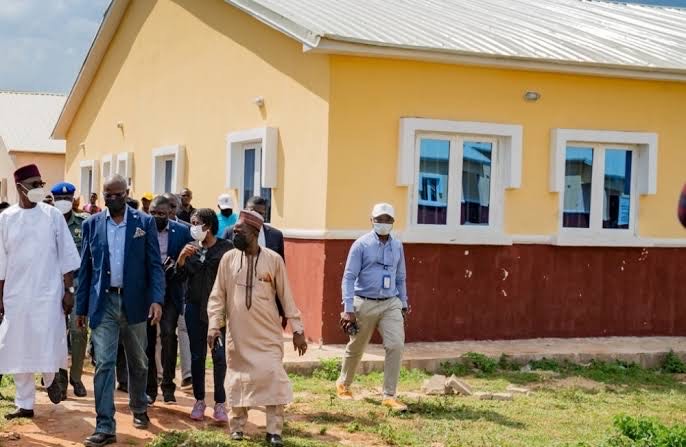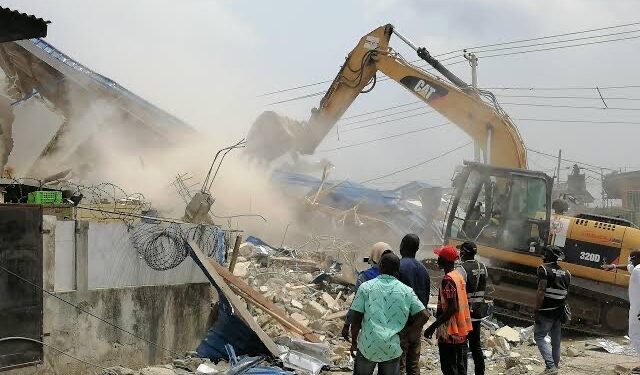A large number of individuals currently identifying themselves as property owners in Lagos, particularly those who have constructed houses in the Ibeju-Lekki and Epe regions of the state, are at risk of becoming tenants as the state government has revealed that approximately 80 percent of buildings in that area lack approval.
Following revelations made by Oluyinka Olumide, the Lagos State Commissioner for Physical Planning and Urban Development, in discussions with journalists, concern and uncertainty have become prevalent among the owners of these unapproved buildings.
The worry and uncertainty arise from the ongoing demolition of buildings across the state due to a lack of building permits or construction on government-acquired lands. These buildings could potentially be demolished at any time, forcing the owners to return to the rental market.
Olumide stated, “We recently visited the Ibeju Lekki and Epe areas last Thursday and Friday and observed numerous estates marked for demolition. From our assessment, over 80 percent of these estates lack the necessary approval.”
He explained the process of obtaining approval, emphasizing the importance of adhering to zoning regulations. He mentioned concerns about individuals purchasing agricultural land without knowledge of its intended use, leading to unauthorized constructions.
Despite not explicitly stating it, it is implied that many of these buildings will likely face demolition, similar to those in other parts of the state, under the government’s demolition initiatives.

The current administration in Lagos, led by Governor Babajide Sanwo-Olu, has intensified building demolitions in recent months, leaving many puzzled about the motives in a city where housing is already a significant issue.
Critics, including a priest from the Celestial Life Ministry, have raised allegations that the demolitions unfairly target non-indigenous residents from certain regions, suggesting political reasons behind the government’s actions.
Housing experts express surprise at the high number of unapproved buildings in the rapidly developing Lekki area, questioning the effectiveness of planning regulations in a state that prides itself as the center of excellence in the region.
While acknowledging the government’s justification for the demolitions based on lack of approval, critics argue that the indiscriminate demolition negatively impacts not only the affected homeowners but also the local economy.
Suggestions are made for the government to take proactive measures to prevent unauthorized constructions rather than resorting to reactive demolition actions that result in unnecessary losses for individuals and the economy.
Several residential areas across Lagos have witnessed demolitions, prompting concerns about the lack of oversight during the construction phase and the subsequent demolition of completed buildings, leading to significant losses for the property owners.
The widespread demolitions in various parts of Lagos have raised questions about the efficiency and accountability of the regulatory bodies responsible for granting building approvals, highlighting the need for improved oversight in the construction sector.

































